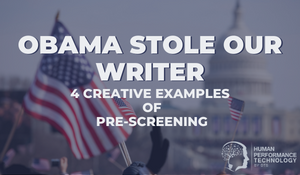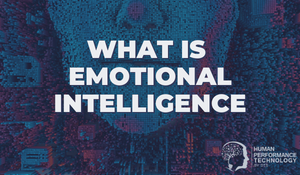Final Post For 2019: The Fisherman, The Industrialist, & The Wizard
I remember once chancing across a business cartoon in which workers were looking at a sign on the office wall that displayed only the word FASTER. The company’s new mission statement, we learn. Somewhat cynically, my first thought was, At least management is being honest.
When you think about it, “faster” and “more” are the logical calibrations of all corporate behaviour, after hitting the target, the quota, the big hairy audacious goal. If we can have 3% market share, why not 5%? The non-profits, too. Why stop at saving 10,000 lives, when you can save 30,000?
I’m not setting up an argument here to equate more with bad - even to play devil’s advocate that would be a shaky argument. Humans are wanting animals, and we want to improve ourselves - this thing called the human condition - which, by the way, none of us asked for. At least, I certainly don’t remember ordering a body fully equipped with pain receptors, to be cast into a world with the fullest potential for horror, at the complete mercy of powerful forces beyond my direct control (parents, DNA, nationality, culture, political system, time period, universal constants), part of a species over 200,000 years old with the collective intelligence to fix its plight like never before and still hasn’t got there because… of its own desire to tear itself apart. When did I sign up to join planet Madness?
So yes, you darn well better believe the topic of improvement is the order of the day.
Had we embraced stagnation, we might have remained stuck as savages in a savage land. Take the Medieval period: average life span around 30, violent death and disease an omnipresent danger, limited social mobility, loads of bizarre beliefs, to name a few issues. The struggle for progress continues, and much deeply unnecessary suffering carries on, like the 50% of the world living on less than $5.50 a day. Thankfully, my internet friend (and I mean that without any shred of irony or insincerity), we, for the most part in the developed world, have all the tools to meet our most essential needs - and then some.
So, advancement? Yes. More? Yes, yes, I say, dear reader. Come, take my hand. Don’t dawdle now. Let us advance!
But let us not advance blindly, or without any hint of reflection.
Where are we going? Towards what, and why?
Since this is my last post for 2019, I wanted to end with one of those brilliantly on point Zen-style stories, one I found floating amid the driftwood on social media in the form of a reader comment attached to Ryan Holiday’s article The Life-Changing Magic of Having Enough.
I don’t think it needs any context. If it resonates, it resonates.
The Industrialist was horrified to find the fisherman lying beside his boat smoking a pipe.
"Why aren't you fishing?" said the industrialist.
"Because I have caught enough fish for the day."
"Why don't you catch some more?"
"What would I do with them?"
"Earn more money. Then you can have a motor fixed to your boat and go into deeper waters and catch more fish. That would bring you more money to buy nylon nets, so more fish, more money. Soon you would have enough to buy two boats even a fleet of boats. Then you could be rich like me."
"What would I do then?"
"Then you could sit back and enjoy life."
"What do you think I'm doing now?"
— John Lane, Timeless Simplicity
Along with stories such as these, I usually also find my mind wandering towards maxims and life lessons around this time of year.

There is a fantasy book series known as the Sword of Truth by Terry Goodkind given to me by my sister in my teens which made something of an impression, which I suppose I might convey just by saying that the main characters are incorporated into my password structure. There are 11 “Wizard’s Rules” discussed over the series, intended to mould the mind of a young wizard in training. Wizard’s 1st Rule is “People are stupid.” (It’s not as cynical as it sounds). Whether derived from good fiction, highfalutin academic theory, practical pub wisdom, or one of innumerable web lists, I love thinking about the validity, utility, and language of life rules such as these - I feel there’s something of a real art to the wording. As a self-development exercise, I forced my brain to focus on putting to paper my top 30 best “Wizard’s Rules.” These are more reminders to myself than advice I’m trying to convince anyone of (you can add the words “Theo, you stupid ignorant fool, don’t forget…” to the start of each principle if you like). Most of the rules are more or less copies, or slight tweaks, made to other people’s thinking, so if you get any value from the list, please don’t quote me. Apart from rule #1, they're not in any particular order.
- Above all, reason. Attempting to replace reason with a higher value implicates reason.
- Truth > Ego. What is true over what is true for you; what is most likely true over what you’d prefer.
- How would a spectacularly reasonable, loveable person proceed?
- Organise around well-being.
- If you would not be property, oppose slavery. If your mind would not be property of another, question.
- Humility is accuracy; ego is absolute certainty. You could always be wrong; you could be missing something.
- Understanding before judgement.
- The dose for the host; proportion your response to the circumstances. The essence of wisdom is knowing what applies, when, to whom, and how much.
- No opinion is better than an uninformed opinion.
- Twig, twig, twig, nest. Stone, stone, stone, statue.
- By the same token: dark/light; negative/positive; down/up; focus/ignore; difficulty/opportunity.
- Put aside the speaker’s alleged crimes, titles, intelligence, and anything that might bother or bias you, and first ask yourself, “Is it true?”
- Is it intellectually dishonest? For example, if you would accept the justification “it could be true” would you forfeit your right to object to the advancement of any belief elsewhere on equal terms?
- Judge an individual as an individual: by the content of their character, not their age, race, gender, nationality, sexuality, appearance or identity.
- As you deal with others, don’t forget your past mistakes, learnings and how your tastes have changed.
- Strengthen or soften your opinion confidence relative to the weight of evidence.
- Sincerity, not cynicism.
- There is a meaningful moral difference between a little hypocrisy and a lot of hypocrisy.
- Give me the bore of accuracy over the poet of imprecision.
- Where a constructive-kind response was available, a destructive-antagonistic action suggests weakness of character, not strength.
- Considerate behaviour - or basic human decency - is a reasonable standard upon which to hold individuals accountable.
- Love gives freely - if you give with expectation of receiving, you are attempting a transaction, not love.
- Consider what was meant, not just what was said; what was intended, not just the result.
- Never get to a place where words like “I’m sorry” or "I was wrong” feel difficult to say.
- Wealth is relative. Dying billionaires would give everything for the time you have.
- How would you change the world if you were going to be born into it once again not knowing who you’ll be or where you’ll be born?
- Change your mind as the evidence changes; give way to the better way. (Of thinking, doing, being.)
- Just a short time, on a rock, together, hurtling through space.
- Labels aren’t everything.
- Explore - there’s more to life than any one person’s worldview.
What about you: do you have a set of wizard rules or short stories you find yourself returning to around this time?
Well, that’s all folks, for 2019.
I don’t know how to thank you for being a loyal reader. Have a lollipop?
How about a love song to take us out.

Theo Winter
Client Services Manager, Writer & Researcher. Theo is one of the youngest professionals in the world to earn an accreditation in TTI Success Insight's suite of psychometric assessments. For more than a decade, he worked with hundreds of HR, L&D and OD professionals and consultants to improve engagement, performance and emotional intelligence of leaders and their teams. He authored the book "40 Must-Know Business Models for People Leaders."



We Would Like to Hear From You (0 Comments)